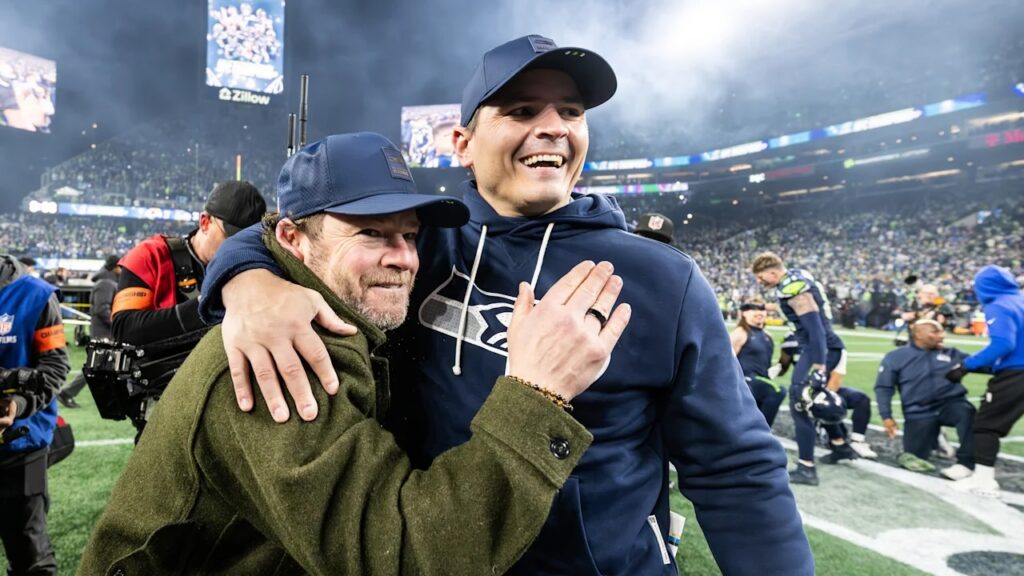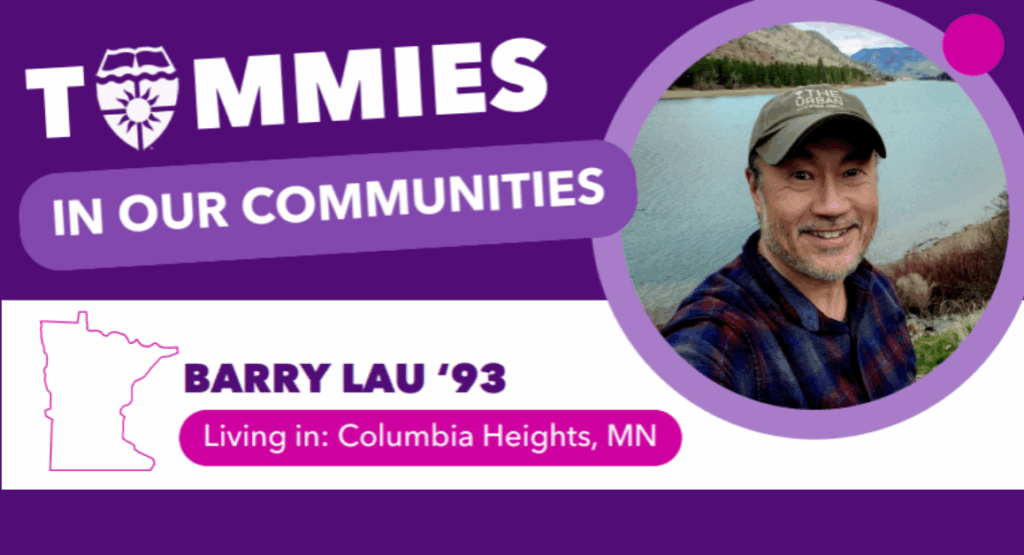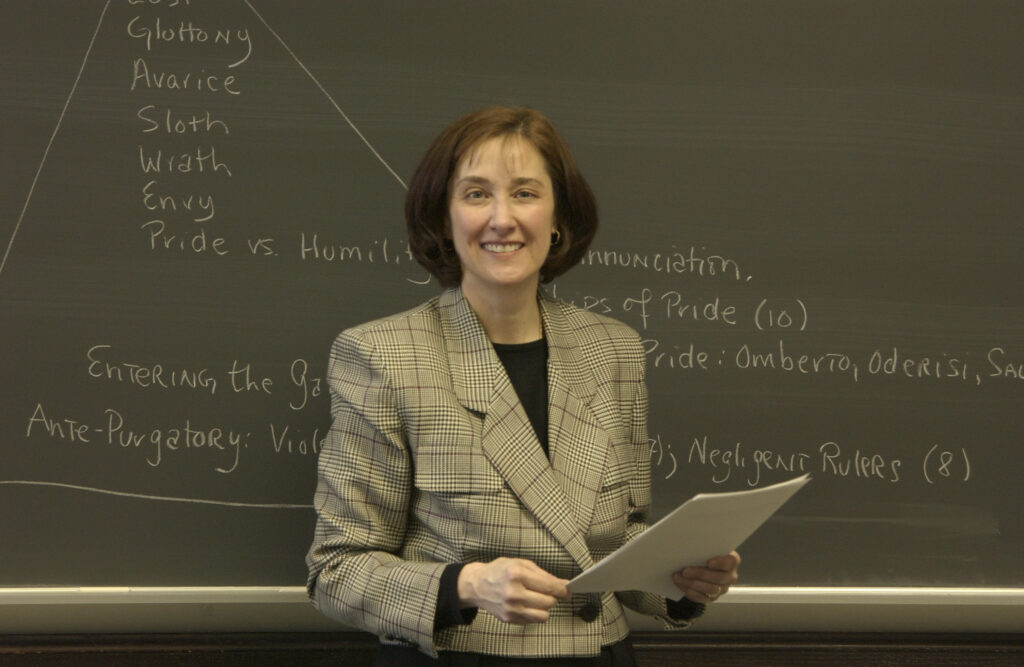Ozzie Nelson, chairman and CEO of NELSON Worldwide, joined St. Thomas’ Associate Vice President of Alumni, Career and Corporate Engagement Karyn McCoy on March 4 for the First Friday Speaker Series to provide insights on how to thrive in a hybrid work environment. He also shared advice on how to approach career advancement, foster workplace connection and create a better future for each other.
Here are five observations from the conversation.
The combination of physical and digital – “phygital” – is the new approach to work.
Instead of believing the stereotypical idea that the end of the physical workplace is near, Nelson asked viewers to shift their thinking toward a new sphere of work called “phygital.” The term encapsulates the importance of physical workspace as well as digital workspace. It is one that proves the work environment is not steadfast nor has a uniform definition but is instead evolving under the influence of global change.
Nelson brought up the point that, aside from adapting to change, the pandemic has been a great accelerator to the virtual workplace – something that had the potential to occur five years ago.
“It was the pandemic that pushed a much more virtual approach to work, and so [now] we have a new future,” he said.
Quoting Herb Brooks, Nelson said, “Out of great challenge comes great opportunities.”
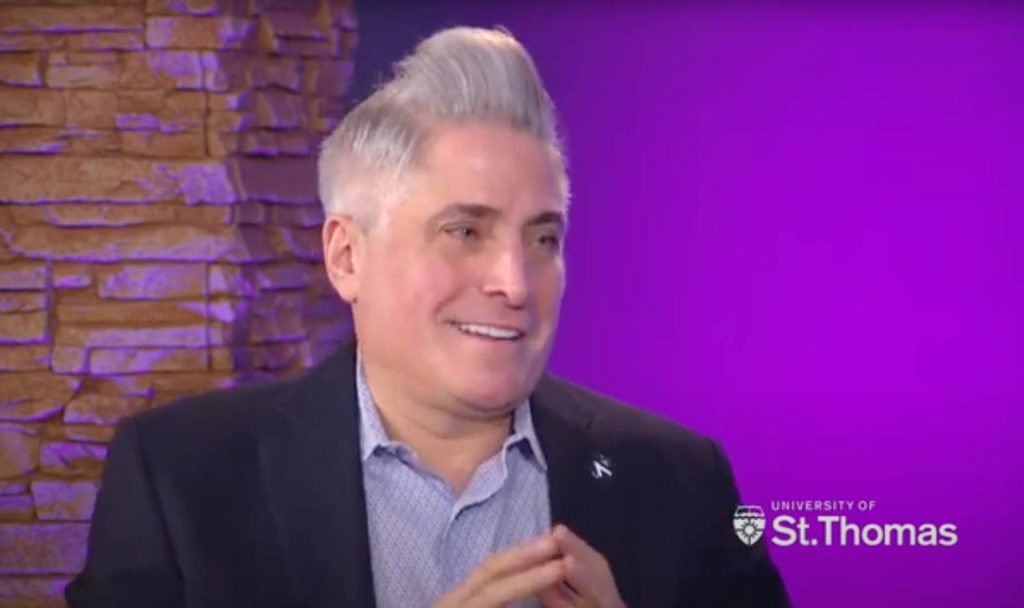
The unexpected issues that arose in industries that were dependent on the physical workplace –such as retail and hospitality – was an opportunity for Nelson and his organization to collaborate with global companies about how to go forward.
“We like to say when the world shut down, we went to work,” he said.
Nelson explained that through working with several organizations throughout recent times of uncertainty, he believes the way that individuals accelerate their career will look drastically different going forward.
“One of the things that I think has been underrated in terms of how people advance their careers, is those casual collisions that happen at the watercooler or walking into the building,” he said.
Recently, he has become aware that interface with senior leaders going into, before or after a meeting no longer exists. People are having to think more strategically about how they can raise their personal brand.
Volunteering for projects to increase visibility, becoming the best in class versus the best in town and avoiding parts of one's career path that are easily commoditized are all ways Nelson suggests individuals can elevate their careers amid digital developments.
“Embracing change, [having] an innovative edge is a way to drive much more value in terms of the way you will be seen in the future,” he said.
Amenities that drive community will be valued in the new workplace.
Alongside the emergence of the phygital approach, the workplace is becoming a more communal and flexible place with more relaxed policies and procedures. Leaders are innovatively coming up with solutions to make the workplace desirable for employees.
“There's this idea of not only what should work be, but how do we even attract people back into the office,” Nelson said.
Placemaking and belonging are themes that are increasingly becoming instilled in the workplace culture. Creating meaning around culture, the organization's brand and forming a sense of belonging for employees is critical in adapting to new mentalities in the workforce.
Considering the areas of community that are most popular and foster gathering, Nelson explained that shopping malls and other community centers have amenities that attract. These amenities play an important role in why people want to go into the office.
“Amenities that drive community will drive the workplace,” he stated.
Nelson explained he expects the return of the old town square, which once served as a place where people could gather and converse with similar like-minded people.
“That's a big part of what people will come back to in the office,” he said.
Nelson expects the office to become a place of connection and collaboration, and that there will be minimal “heads down space” in the future.
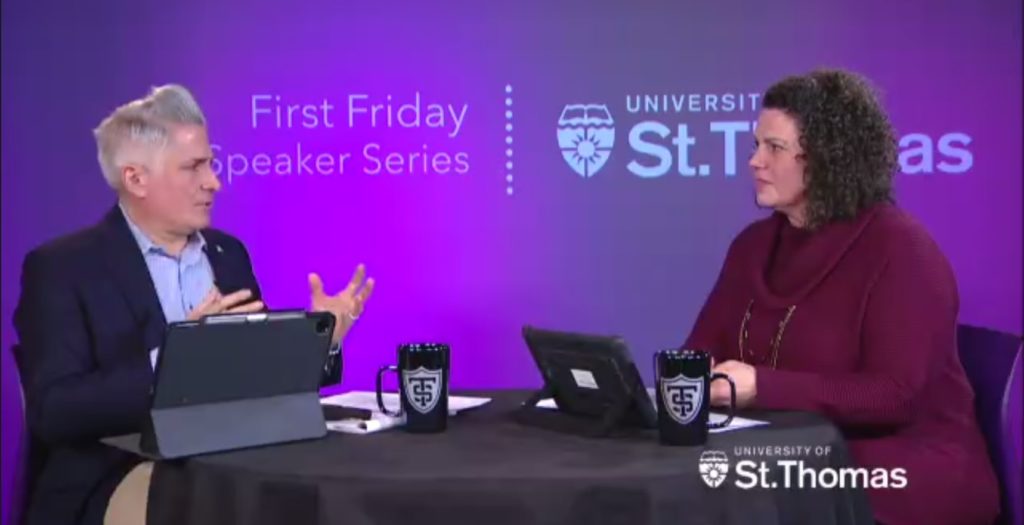
Flexibility and versatility have become table stakes in the workplace today.
Having flexibility in the office years ago was a bigger deal compared to how flexibility is handled today.
“Today it's just expected,” Nelson said.
Physical and digital experiences are now merging to advance new ways of connection, loyalty and belonging. People should view the brand and culture as one rather than separate entities.
Flexibility in the context of career advancement is being reconsidered in many organizations. Pre-COVID-19, career advancement was driven by formal mentorship and classification within the workplace.
“This consistent advancement I believe will forever be disrupted,” he said.
With five generations in the workforce today, flexibility in terms of management and leadership strategies has been a new and challenging endeavor for many. Managers are having a tough time managing from afar and putting complete trust in employees. Baby boomers have struggled with the shift to remote work because for most of their occupational life, they have been operating in a collaborative environment.
“In particular baby boomers [are having] a really difficult time, especially when they are so used to having their teams around them,” he explained.
For employees who wish to stand out in the digital workspace, Nelson suggests co-designing expectations with outcomes with managers and discussing daily or weekly expectations as great solutions.
“If you co-created outcomes, it's less important about when you are at your desk, and more important about the amount of work and expectations that you are getting done,” he said.
Speaking to upcoming graduates, Nelson said young adults should shift their mentality from having to go into the office to getting the opportunity to go into the office.
“Those are really the opportunities to see things in a very different way,” he said.
Make the most of the remote work experience.
Nelson explained that the changing narratives about the workplace culture are proven through the following survey data:
- 88% of people believe that work will change.
- 56% of respondents believe they will work two days or fewer in the office.
- 50% of respondents believe workers will enjoy at least as much flexibility as they enjoy today.
With normalcy of the workplace lacking clarity today, the duties associated with employees and managers are being adjusted while professionalism and culture are being reassessed.
In order for employees to put their best foot forward online, Nelson advises having a proper camera, professional place of work and being conscious of the way your virtual settings project you.
As a long-term goal, Nelson said to embrace being a continuous lifelong learner is a great way to adapt to new work cultures and unexpected scenarios.
“I think [this] is the best way for all of us to position ourselves in an ever-changing world,” he said.
Managers have a key role to play in creating a supportive remote work experience, especially those who manage 100% virtual organizations. Nelson says some sort of retreat time or check-in with employees is necessary.
He continued, “I think one of the things that is going to happen increasingly for organizations that have large office populations is … they’ll lease space once a month [or] once a quarter and that will be that time of building camaraderie and culture.”
The less time people have together, the more contemplation that goes into building culture.
“If all I'm doing is working on a Zoom screen for one company, I can just switch jobs and keep doing the same thing in my house. It really is about this connection, purpose and culture,” he explained.
The more virtual, the more purposeful the managers have to be when it comes to community.
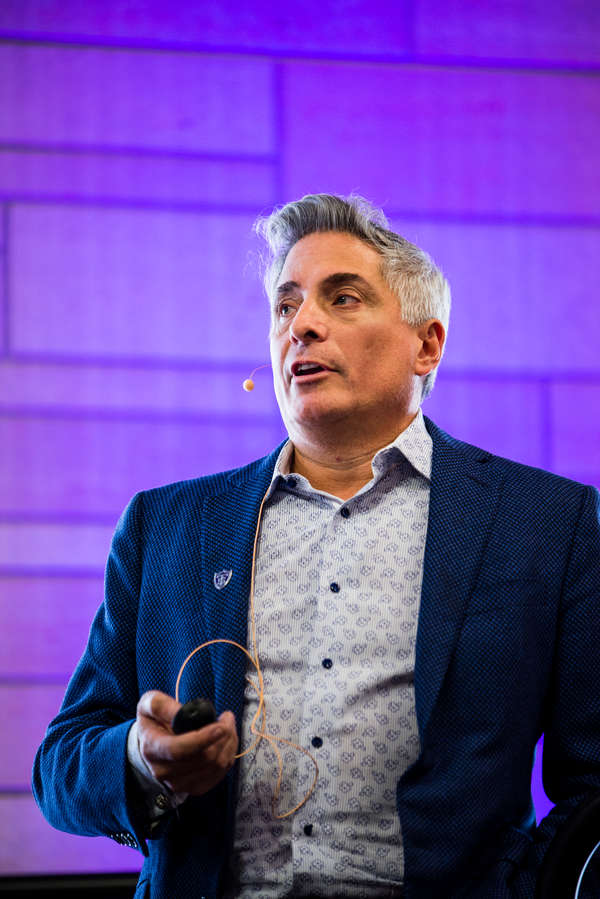
The “Great Resignation” has become the “Great Reassessment.”
The competitive conditioning that begins in kindergarten and continues as one enters the workforce is a way of life for most. Because of the pandemic, this aggressive environment that was so familiar suddenly is no more.
“People sat at home for two years and had all the time that they had spent going from place to place to really reevaluate their lives,” Nelson explained.
Never before has there been this sudden break that forced everybody off this zealous track. The pandemic allowed people to consider their core values and insightfully look into what they really want to do.
“The connection with [an] employer who has meaning and who has a culture that connects with them becomes very important,” he said.
This reevaluation is proven by the fact that 65% of all people are looking for new jobs today, Nelson said. Additionally, 88% of employers are seeing higher turnover than ever before.
“There are almost no industries that have escaped the Great Resignation,” he said.
In order to soothe the challenges associated with virtual or hybrid work, Nelson said having the right technology tools to supplement this way of work is key. Ensuring that everyone has an equal voice online or in person are critical practices as well.
“All of that really has to be modulated and choreographed to what the collaboration goals are. Do we collaborate on big ideas? Do we collaborate on an ongoing basis? What's the size of our collaboration? These are the things that we hear people rethinking all the time,” he said.
Not only is the Great Reassessment happening, but there also are more people retiring than ever before. Nelson said that typically when people go through a challenging time, the economy follows suit. But the pandemic was a different story.
“Retail and hospitality died, but Amazon and digital companies really took off. Many people who were retirement age had the opportunity to retire because the stock market did really well,” he explained.
Speaking to each of the five generations in the workforce, Nelson said everyone must realize that their generation is just one fifth of the people employed.
“If we really want to build a collaborative environment, we have to be understanding of each other's differences and we have to understand that our preference and our differences are just some of the preferences and differences,” he said.
Sign up for the April 1 First Friday to hear Shari Ballard, CEO of Minnesota United FC, and Opus College of Business Dean Stefanie Lenway discuss and share lifelong lessons learned from their executive experiences.
